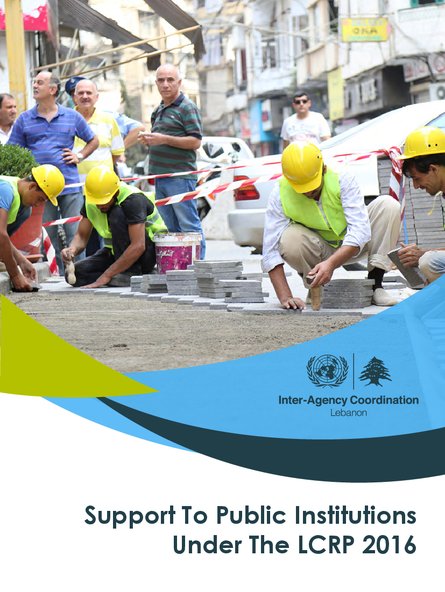
Current thinking argues strongly for national and local institutions to feature prominently in any humanitarian response. Efficiency and legitimacy considerations, as well as the tangible benefits such an approach brings to host communities and nations, provide a strong rationale for stabilization-oriented interventions. Strengthening public institutions has been a key component of the Lebanon Crisis Response Plan (LCRP) which estimates that 3.3 million individuals are in need either from an economic or social perspective. These people are best reached by strengthening existing systems and institutions. Indeed, the latter have gained critical local expertise as first responders to the crisis, providing innovative solutions to multi-faceted needs